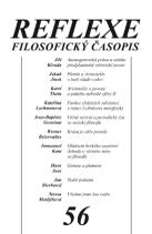The Philosophy of History as a Problem. Jan Patočkas Heretical Essays in Its Context
The philosophy of history was an important topic in Jan Patočka’s writings throughout his career. Significant differences notwithstanding, his understanding of this understaking points back to the aims pursued by German philosophers of the late 18th and early 19th centuries, particularly Herder, Kant and Hegel. While Patočka adopts Kant’s and Hegel’s distinction between empirical history and universal history as construed on a priori grounds and shares their view of history as realisation of human freedom, he abandons the notions of providence and progress. Instead, he aims at elaborating a notion of history based on the idea of a radical choice to be performed by mankind at any given time between a ‘historic’, i.e. autonomous, and a ‘history-less’, i.e. heteronomous way of life. In order to establish this difference Patočka exploits Heidegger’s philosophy of being, truth and freedom. The paper situates Patočka’s
Backlinks: Reflexe 50
